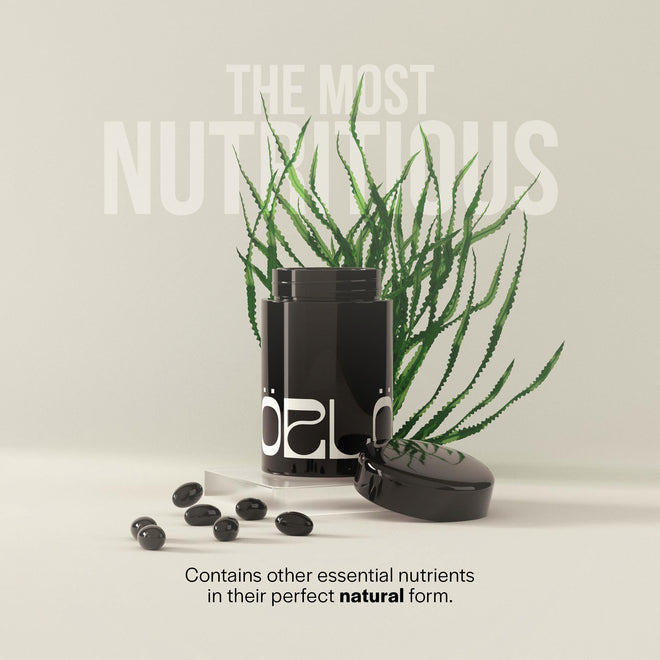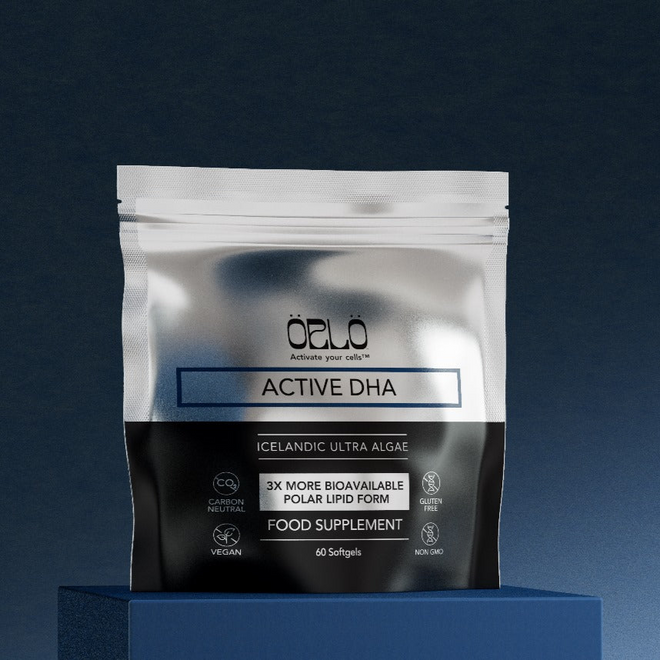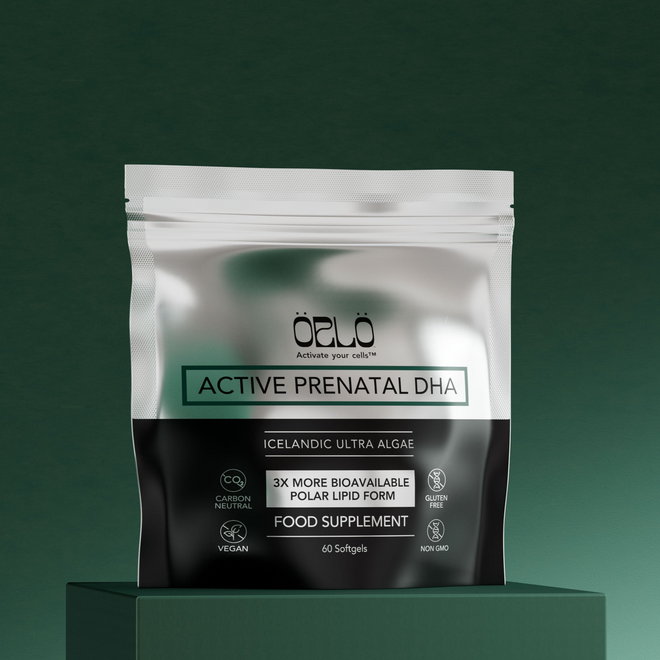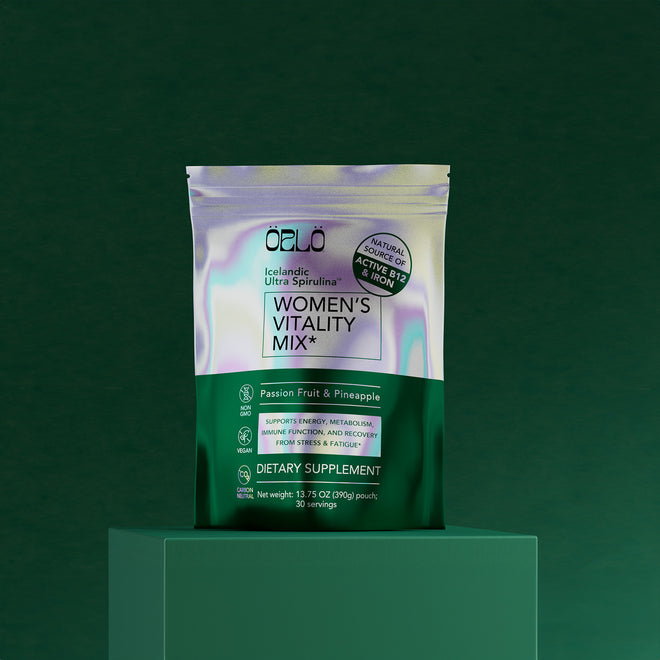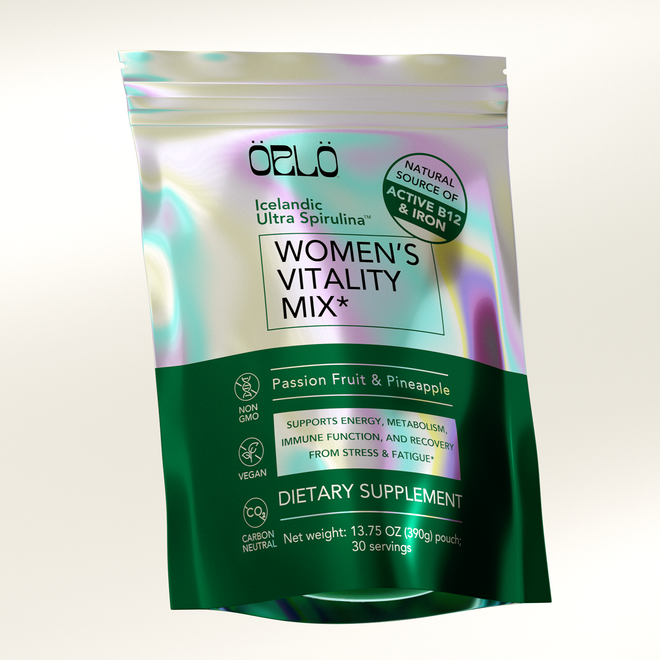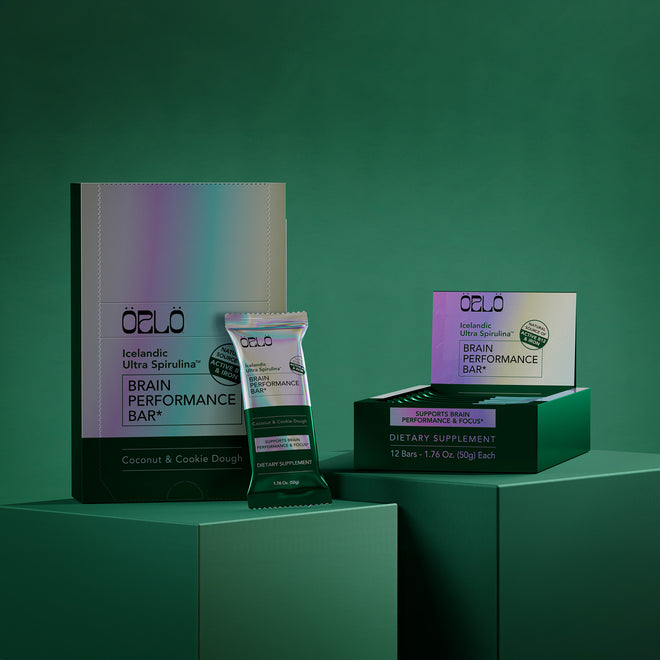Free shipping on purchases over $69
Clean Cooking Solutions To Reduce Pollution And Improve Health With Ben Jeffreys, ATEC
Watch the episode here
One of the selling points for new build houses and appliances is that “it's all-electric”. But what does that really mean and how does it benefit us and the environment? In this episode of Nutrition Without Compromise, Ben Jeffreys, CEO of ATEC – a social enterprise startup that aims to create global access to clean cooking solutions – joins Corinna Bellizzi to discuss how we lose around 13 hours each week cooking with wood and the smoke pollution that it causes which is tied to almost 4 million deaths per year. He then shares clean cooking solutions that can restore our soils, reduce carbon emissions, and doesn’t compromise our health and the planet’s as well.
Key takeaways from this episode:
- Cooking with wood and LPG (liquid propane gas) has adverse effects on our health and the environment
- More environmental-friendly and safer options include biogas, electric or induction cooking, and ethanol technology, among others.
- Nutrition does not only mean we eat healthy food but we also should not compromise our health when preparing the food we eat.
Guest Socials:
---
Clean Cooking Solutions To Reduce Pollution And Improve Health With Ben Jeffreys, ATEC
Did you know that nearly half of the world's population lack access to clean and modern cooking products who lose around thirteen hours each week cooking with wood, which also causes smoke pollution and is tied to almost four million deaths per year? That's almost three times more than global deaths from traffic accidents.
The reality is that this lack of access to clean cooking costs the world economy approximately $2.4 trillion each and every year due to the adverse impacts of unsafe and polluting fuels on people's health and the climate. To unpack these issues and get to the meat of the problem and possible solutions, I'm joined by Ben Jeffreys. He is the CEO of ATEC, a social enterprise startup that aims to create global access to clean cooking solutions. Ben, welcome to the show.
Thanks for having me.
It’s lovely to have you here. As we get started, I thought I would ask you to simply, for a moment, stand on your soapbox and summarize why we should care about clean cooking beyond what I've shared.
You summarized a few good points there. It's a global silent killer from a health perspective, particularly for women. As you mentioned, it kills more people than traffic accidents globally each year. It's a slow burn for as far as over time that it takes for these problems to come along. It affects about half the world's population as well, children. As you would have expected, many of these households hang out around the kitchen with their mothers.
It's not a health issue. It's also an issue for the environment. It's not well known but if we are able to solve this problem, it will offset more carbon emissions than the global airline industry. It's a couple of percent of total global carbon emissions. It's not a huge social problem but it's a huge environmental problem. The good news is there are solutions that we can move forward with.
When we are talking about clean cooking solutions, what are we speaking of specifically? What are these clean cooking solutions?
There are a couple of different levels of what they call in the industry like this. What we are focused on is decarbonized cooking solutions. These are solutions that don't rely on biomass or fossil fuels over the long-term. For us, we have two products that we supply out to people across Asia and soon Africa. One is an electric cookstove solution, which is a high-efficiency induction stove.
The other is a biogas system. It is both a cooking solution but it produces around 20 tons of organic fertilizer per year in converting animal manure, kitchen waste, and green waste into fertilizer and gas for cooking. Being able to take people from cooking with wood, be that wood, crop residue or charcoal up to these high-tier solutions as we call it, is what we are trying to achieve.
I'm trying to picture the life of an individual in one of these areas where half of the world population is living in a way where the cooking is polluting a lot within their environment and trying to parse the statistic of three times more deaths than happen in cars. What are the kinds of melodies or sicknesses that these people tend to suffer from? Are we talking about cancers like lung issues? What are we talking about here?
The way I usually talk or help to describe it is it's like smoking a pack of cigarettes a day and also getting it in your eyes. Another common problem that people have is cataracts and other eye-related issues, a lot of early onset of fineness for women from constant smoke exposure. Predominantly, lungs and eyes are the main issues for a lot of women. It has also been linked to childhood malnutrition, unfortunately. It's prolonged smoke exposure. Much like it was why they say, “Don't smoke around children. It causes deformations in the intestinal system around real life.” It's something that we need to move back and take action on.
I hadn't understood that there was also a connection to intestinal health but thinking it through, it makes sense. You are polluting your systems. Things get gummed up that aren't necessarily directly involved with contact with lung tissue or your eyes. These permeable membranes are more affected by pollution like the lungs and the eyes.
Smoke from cooking is like smoking a pack of cigarettes a day, but you also get it in your eyes.
Your gut is a permeable membrane too. That makes logical sense. It's a little surprising but as I think about this with the global whole, much of the communities that we see in the West are still cooking with things like propane, a lot of barbecuing, and things along those lines. Do you have a perspective or other methods of cooking and what we can do to clean up our acts so that we are not creating all of these additional greenhouse gases? Some of which we cannot draw down through photosynthesis.
We don't have it a lot in the West but in America, there is if we talk about a couple of solutions. In America, for example, there is the option of using biogas. In America, there's a company called HomeBiogas, whose sell the systems are in America now. It's like composting in that you get gas out of that solution. There are solutions there from a barbecue perspective.
What we think on the gas side, as far as using gas for cooking, is we expect that LPG will phase out over the next decade. We wrote an article on this in 2021. The end game solution for cooking is high-efficiency electric cooking. Induction is the best technology on the market for that. It's safer and cheaper. It's decarbonized.
It depends a bit on the grid and what the grid is. As the grid gets greener and greener, it's going to be by far the best solution moving forward. That's what we expect. I'm an Australian. In Australia, they are phasing out LPG connections or gas connections for new housing developments. It's underway but we are probably a little bit behind where we should be in the West.
When you say LPG, that's Liquid Propane Gas, correct?
Yes.
I like to translate all of the acronyms because the reality is if we are always speaking in jargon, only a segment of the population will understand. As we think this through, there are a couple of developments I've seen in my own neck of the woods, as it, for example, where there was a housing development that went up, and they were emblazoned on their billboards, and the neighborhood, all-electric.
They did not convey to people what that meant and why that was significant. Even here, I am cruising around my neighborhood, seeing this all-electric and wondering, “Why is that important? Why is that a good thing?” Not understanding that what it meant was that there was no gas hookup and there was a solar farm connected to the property. All of their electricity comes from solar.
It felt like a better message might have been, “All solar energy, no gas.” Those things would have been much clearer to the consumer that isn't necessarily aware that all-electric also meant green electricity. It's not necessarily commonly known that if you say all-electric, you are also conveying that you mean that it's using green energy. We need to get our language a little bit better around this and maybe perhaps improve our skills as marketers in this space so that people understand what it is that they are buying into and the impact that's going to have on their own personal carbon footprint.
It's always a challenge to get it, and you should go pitch that to that housing development. The ultimate solution is we want 100% renewable energy delivered efficiently into our households and what we are trying to do is extend that out to the emerging developing world as well.

Tell me about the technology behind the units that you are creating, which create a greener cooking experience, even in some of these environments that are somewhat off the grid.
If I focus on our electric cookstove range, we put these into households to be able to cook. They are able to get faster, safer, and more cost-efficient cooking solutions in their households. That's great for them. What's unique about our devices is that it's a patented design that also has a GSM SIM card in there. With that SIM card, we are able to do a couple of things.
We are able to provide better customer service and support because we can connect to the system and see how it's going. We can also monitor usage, which has a couple of other benefits. We are working closely with the grid providers in these countries, mini-grids or whatever it may be. Being able to see that usage data is valuable to them and use and manage the load within the electricity system.
The second one, which is the big opportunity, is we can take that usage data and convert that into carbon credits. These companies and governments have signed up around the world to net zero, in part of the way they are getting there is through buying carbon credits. We are able to offer those carbon credits based on what people have converted from cooking with goods to cooking with electricity. We are able to offer those carbon credits and use those carbon credits to be able to reduce the costs to the household, which means we can get more people onto electric cooking.
I probably misspoke because this is an off-the-grid. It's an electric solution. I'm curious what percentage of the overall cost of having a home and cooking with something like this electrical solution is for the people living in those areas. You are mentioning these carbon credits to help pay for the electricity that they might be consuming but what are they looking at? Is it a quarter of their electricity use?
As far as electricity use goes, they are low electricity users. I might step back on one point because a lot of people, usually a question they have, is, “Do these people have electricity?” It is a common question that we get, which has rapidly changed in a lot of the markets we are working in. If you take Cambodia and Bangladesh, where we majority work, you are looking at 90% to 95% of households now have grid electrification, which has been a huge leap forward in the last few decades. We went from less than half the population up to these numbers.
We've got all people with access to electricity. They tend to use quite small amounts of electricity, a lot of households because it's, for some basic lighting fans, maybe a TV, if they are doing a little bit better for themselves. They might be spending around $5 to $10 a month on electricity. If they bring in our stoves, they are going to be spending around about the same, somewhere between $5 to $10 a month on the stove but they are saving time, money, and from cooking from another source from there.
How does this impact their nutrition? That's the question that has been lingering for me because I wonder if the nutrient value of their food changes because they are cooking it in a different way and perhaps not charring it or something along those lines. If they are able to cook their food more efficiently, they are getting more out of it. I wonder if you could speak to that.
From a nutritional value, there may be some changes around how the food is cooked. We haven't looked specifically into that. Probably, the biggest nutritional outcome is getting smoke out of that environment for those households. They do not have to deal with the health issues which potentially affect their nutrition for that person. That's probably the biggest outcome but it's an interesting point. We haven't looked in into fixing the indirect nutritional value of the food through that cooking approach.
If it's changing their cooking habits overall, are they shifting to steaming vegetables that they otherwise might not have before and things along those lines? It piques my curiosity personally. The other technology that you mentioned had more to do with using animal dung and things like that as fuel. Is that correct?
All-electric also means that it's using green energy.
Yes, correct. We have these tanks that looked like a water tank quarter by the Jester. The design for small-scale farming households. If you have feed livestock on a farm, they collect the animal manure and put that in there along with kitchen waste and green waste. That’s what's called metagenic bacteria in there, which break that down into methane, which can use as gas for cooking and organic fertilizer.
You are using the same technology that would use natural gas to cook but using the gas that's created from the breakdown of the bio-organic material. In that case, the biodigester itself would create some pollution but it would be a step beyond or lower than what you would typically see if you were burning things like wood or other material.
There are two things. Number one, we are offsetting that wood cooking, and number two is if you allow manure to sit there, there's quite a bit of methane that is released from that manure naturally from the animal.
You are capturing and using it as opposed to letting it go in its own degenerative way.
Methane is a greenhouse gas. It's about 100 times more potent than carbon dioxide. What we are doing is capturing that and doing it in an efficient way, burning that for cooking, and it can reduce up to about 7 tons of greenhouse gases per year through doing that approach. That's per one system.
I apologize for the ignorance here but I don't understand how burning methane changes its ability of it to become a greenhouse gas that would otherwise be detrimental to the environment. Can you enlighten me?
If you look at methane gas, you are breaking it down into water and CO2 when you've got it. By doing that, you are taking something that is 100 times potent to the atmosphere, and you are breaking it down effectively into 1 or 2 times. The difference between those two is a 98X, 50X or 100X reduction in impact on the atmosphere.
That helps to remove the ignorance. Thank you for that. If you were to paint a picture of the future that we would all want to live in that has optimized how we are using fuel and cooking, what would that look like? How would our lives be different now than they are presently?
It would be cooking that is decarbonized. The fact that you don't have to rely on wood or fossil fuels for our cooking in the future, at the global level, would be electric cooking. Biogas can play an important role there. There's also some ethanol technology that's out there, which is quite environmentally friendly and renewable too. These are the solutions we would like to be able to see.
We draw some parallels to how we see the car market and what's happening in the car market. You are undergoing this tectonic shift from being a fossil fuel-driven sector, and electric vehicles are now coming in and becoming more standardized in the norm at the time. That's what we think will happen as people get more and more serious about tackling emissions across a variety of ways. It wouldn't surprise me if, in 10 or 15 years, we are all cooking on electricity.

If you could draw a parallel to something like how we are heating and cooling our homes because still around the world now, a wood-fire is much of what is used to heat a home and air conditioning with things like other greenhouse gases like freon. It is a commonplace as we continue to develop. When I hear statistics, we've gone from 50% of houses electrified to 95% electrified in a developing country.
I'm also thinking at what point do they start to say, “I want air conditioning and central heat.” These things are going to take a lot of energy. I'm sure this is something you've looked at. I know it's not specifically in this space of cooking but I would love your thoughts with regard to how we can shift that over the course of the next couple of decades.
We should expect that as people move up the economic pyramid, they are going to look for more convenient technology solutions. We see it in the households. We worked with and kicked off that several years ago in Cambodia. We've seen low smartphone penetration. Now, in Cambodia, there are more smartphones than there are people in the country.
We are seeing that with electrification and other areas of modernity that people are looking to bring in. As far as taking that forward, we need to strike a balance. I don't think that technologies have an inherent problem with them as such. It's more of where is that energy coming from, and is it renewable? We want to be able to tackle that problem on two levels. One is efficiency, and what we see is driving forward with efficient devices across the board.
For example, in the work we do, if you haven't used them back in the past, that it's old electric coil heaters that were an absolutely terrible thing to cook with. They were low efficiency and terrible to use. We want to avoid that technology, be it air conditioning or whatever it is, and have high-efficiency setups. The bigger point such as making sure that the grids, be off-grid or on-grid, that the energy that we are drawing on is renewable.
I remember a discussion once. There was the British guy, Brian Cox, talking about, “The ultimate goal is we can be abundant with energy.” That is the ultimate goal we want to move towards. It is not to have constrictions on energy but we need to do it in a way that's renewable, efficient, and sustainable for the future.
This show is entirely about nutrition without compromising your health, your morals or the health of the planet. It does fall into this perspective of ensuring people have access to cook their food so that it's healthy for them to eat. There are some foods that aren't healthy to eat raw. We need people to be able to cook them, purify their water, and do simple things within their homes to ensure their future health and not sacrificing the health of the planet.
This may have been a little bit more technological and a little bit less nutrition-based than our typical shows. The topic is one that we all need to think a little bit more about. I understand that you are also using technology to optimize and feed the success of your company. Is the internet of things an integral part of your future?
For us, we believe because, as we've seen following COP26, the big meetings of government in 2021. There has been a renewed commitment towards getting the globe towards net zero over the next 30 odd years. A big part of that is having those carbon credits because as long as we reduce carbon emissions, no matter where they are, that is the goal. Carbon credits are a function to be able to trade them to people who, for whatever reason, can't reduce to the level that they need now that can buy those carbon credits.
What that internet of things functionality helps us to do is for us to be able to do those carbon credits at a much larger scale and much more efficiently than traditionally, you would have to send someone out to go check households, etc. It's not efficient and not as reliable. We see databased or IoT-based carbon credits being where the future of the market or will want to go because the quality is much more trusted. You can do it on a lot of, much larger scale. That's what that helps us to achieve.
You are able to get a faster, safer, more cost-efficient cooking solution in your households using an electric cookstove range.
Using technology like artificial intelligence, the internet of things, and data streams to make better decisions and ultimately refine even our usage of energies. We are not using it when we don't need it is all I think is critical. Thank you for sharing that perspective. If there was a question that I haven't asked that you wish I had, what might it be? If you don't have one, I would love to know from you a closing thought for our audience to consider.
We haven't linked to the nutrition that is around the use of chemical fertilizers globally. This is one of these things that a lot of your audience is probably more familiar with than a lot of people. It's leading to pretty widespread soil degradation for a lot of countries, particularly food bowl countries in the developing world, which grows a lot of the things that we consume in the West.
For us to be able to look at how can we support and intervene around increasing organic fertilizer inputs in those scenarios because these farmers can’t catch rich in the work that they do. They are quite often looking for the cheapest solution. That's both a supply and demand approach to that. One is making the supply of organic fertilizer easier for farmers in these situations and also pushing more towards organic from a demand perspective. We will help to achieve that.
We are a bit on the soil crisis globally, where effectively every year, we heavily chemically fertilize the soil. It drops the soil down one level. There is a bit of concern internationally that we are going to proactively make a lot of what is now farming land like in Arab over the next 50 years if we continue with these practices. That's a big alarm bell for all of us. From a nutrition perspective, we need to be sustainable on that front.
I noticed that a thought leader I follow, Sadhguru, has launched an initiative to save our soil. If you go to Sadhguru's Twitter feed, as it, for example. It's the banner in the background all around being a conscious global company or conscious global group of people of all concerned citizens that are seeking to restore, rebuild and regenerate our soils around the world because we are not that far from an arid crisis. We can't grow food that we need to grow in the soil that we have. Topsoils have been eroded, and we must work to put carbon back into the soil. There are a number of ways that we can do that and put nutrition back in the soil too.
I'm reminded of some of these old radio programs that Dr. Wallach, which was a supplement brand, put out there. He would buy Remnant Radio and talk all about how people needed to put their ashes from their fire back on the grounds that they were growing their food. We've gone so far from that type of lifestyle. We are not farming our own food and cooking with wood.
To your point, if we are cooking with wood, we are polluting the atmosphere in such a way that is untenable. We need a better solution that can restore our soils, and we do need more people thinking about that problem. I appreciate how you are working to do this with ATEC. I would like you to summarize how it is that you are a part of that process so that we get a clearer understanding of the connection to the soil.
We were doing things on a smaller scale around but particularly with that product. It is effectively taking what is normally seen as a valuable resource. A lot of valuable resources around how many are kitchen waste and green waste and effectively helping them to turn it into an organic fertilizer that can be easily used on their farm and highlight to them when we install the product and talk to them about it. Chemical fertilizer may be easy but it's probably costing you a lot more than what you expect compared to using this. Shifting on a farmer by farmer level their view of organics and how they can do that moving forward. It’s a step-by-step.
Are you also finding this as an opportunity to educate about farming without tilling the soil? Is that something that you are involved in?
There's a lot of conversation around that in the countries in which we work and particularly looking at the biome within the soil and how you can best protect and care for that. One of them is the no-till approach. I know quite a few friends and partners who are trying to push that forward. It's a strange thing that people are adamant that they must till that soil. It has been a tricky one. Even with the awareness, it's still tricky to convince people that's the way to do it.

How many years did we spend educating people that they needed to plow to plant? Getting to a perspective where we are not doing that or we may still employ some basic aeration of the soil, but also find different ways to do that without plowing and ultimately ensuring that in doing that, we are restoring and protecting the topsoil and all the microbes within because, to your point, those microbes increase water retention within the soil. You don't need to use as much water in farming. That's one of the key indicators of long-term success, especially as we run into water restrictions and different communities around the globe with shifting rain patterns and things along those lines.
I will be digging into that subject in a little bit more depth as I bring in a future guest, Tom Newmark, who is the Cofounder of The Carbon Underground. He's a regenerative farmer himself with a working farm at Finca Luna Nueva in Costa Rica. I encourage my readers to stay tuned for that one. Ben, this has been my pleasure. I want to thank you for your time.
I appreciate coming to the show. It has been a great conversation
To learn more about Ben Jeffreys and ATEC, I would invite all of you to visit his website. That's ATECGlobal.io. I know this IO finished to a website is relatively new to some. Think about it as the internet of things but without the T at the end. Ben, any closing words?
The more we can appreciate you having me on Corinna, the more we can raise awareness around this cooking issue that's happening globally but there are solutions there. There is a lot on that horizon. I appreciate you giving us some opportunity for us to discuss this.
If you enjoyed this discussion, be sure to subscribe to the show so that you are alerted when new episodes drop. Thank you for joining us. Here’s to your health.
Important Links
- ATEC
- HomeBiogas
- COP26
- Twitter - Sadhguru
- Carbon Underground
About Ben Jeffreys
 Ben Jeffreys is a multi-award winning entrepreneur that is working to bring clean, decarbonized cooking to households across Asia and Africa. His work also advocates for a reduction in the use of synthetic fertilizers that destroy our topsoil, working with organic fertilizers instead so that we can rebuild our soils.
Ben Jeffreys is a multi-award winning entrepreneur that is working to bring clean, decarbonized cooking to households across Asia and Africa. His work also advocates for a reduction in the use of synthetic fertilizers that destroy our topsoil, working with organic fertilizers instead so that we can rebuild our soils.

